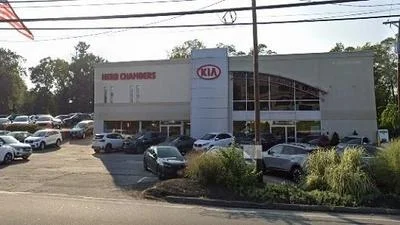Representative Joseph McKenna | X
Representative Joseph McKenna | X
Joseph McKenna, a representative for Massachusetts District 18, expressed opposition to the Advance Clean Car II (ACC II) mandates, citing concerns that the goals are unattainable and could lead to job losses while increasing costs. This statement was made during an interview on March 20.
"I am completely opposed to these mandates," said McKenna. "They are unattainable 'pipe-dream' goals that will put people out of work while driving up costs for all."
According to Mass.gov, the ACC II regulations, adopted by Massachusetts in December 2022, require automakers to increase the percentage of zero-emission vehicles sold, with a mandate for 100% of new car sales to be electric by 2035. This initiative is part of a broader effort by the state to reduce greenhouse gas emissions and combat climate change. Critics argue that these mandates may cause significant economic disruptions, including job losses in traditional automotive manufacturing sectors.
A report by the Massachusetts Public Interest Research Group (PIRG) indicates that the ACC II regulations could result in a substantial shift in the automotive market as automakers strive to meet stringent zero-emission vehicle targets. These targets are intended to reduce transportation emissions but may lead to higher production costs for automakers. Critics express concern that these increased costs could translate into higher prices for electric vehicles, potentially making them less affordable for consumers.
The Conservation Law Foundation (CLF) reports that while ACC II standards will help reduce emissions over time, immediate costs could be considerable. The transition to electric vehicles necessitates substantial investments in infrastructure and manufacturing changes, which might raise costs for both consumers and companies. Additionally, this shift could affect workers in traditional vehicle production sectors, raising concerns about job displacement.
Joseph McKenna was a U.S. politician and jurist who served as a U.S. Congressman, Attorney General, and Supreme Court Justice. Known for his conservative stance on limited government intervention, McKenna advocated minimizing government overreach, particularly regarding regulatory mandates. His career reflected a preference for policies aimed at reducing potential economic impacts from sweeping mandates, aligning with concerns similar to those raised about the ACC II regulations according to Britannica.






 Alerts Sign-up
Alerts Sign-up